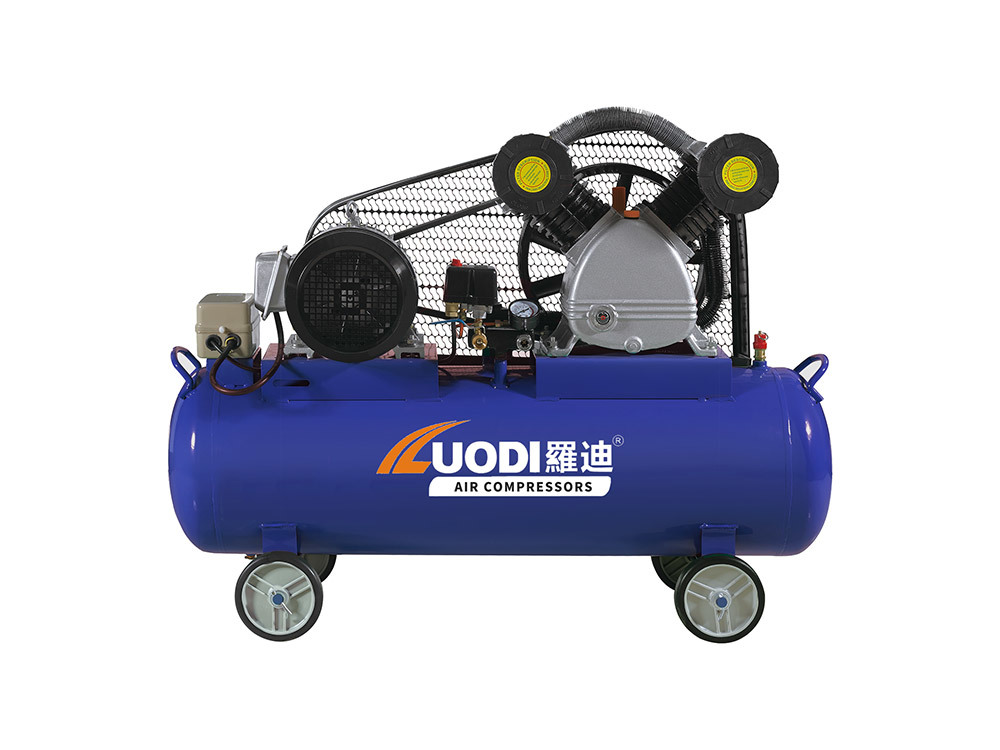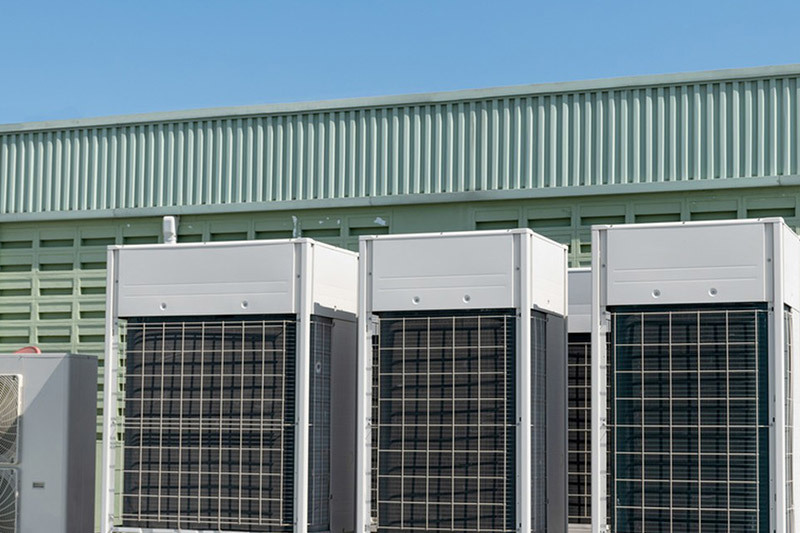01 Sep,2025
The Science Behind Efficient Air Compressors for Pharmaceutical Applications
The Science Behind Efficient Air Compressors for Pharmaceutical Applications Table of Contents Understanding the Role of Air Compressors in Pharmaceuticals How Air Compressors Work: A Technical Overview Types of Air Compressors Used in Pharmaceutical Settings Efficiency: The Key to Operational Excellence Factors Affecting the Efficiency of Air Compressors Regulatory Compli
The Science Behind Efficient Air Compressors for Pharmaceutical Applications
Table of Contents
- Understanding the Role of Air Compressors in Pharmaceuticals
- How Air Compressors Work: A Technical Overview
- Types of Air Compressors Used in Pharmaceutical Settings
- Efficiency: The Key to Operational Excellence
- Factors Affecting the Efficiency of Air Compressors
- Regulatory Compliance and Quality Assurance
- Optimizing Air Compressor Performance in Pharmaceutical Applications
- Future Trends in Air Compression Technology for Pharmaceuticals
- FAQs About Air Compressors in Pharmaceutical Applications
Understanding the Role of Air Compressors in Pharmaceuticals
Air compressors are indispensable in the pharmaceutical industry, serving a multitude of purposes, from powering pneumatic machinery to providing clean, dry air for packaging processes. Their ability to compress air efficiently helps maintain the integrity and quality of pharmaceutical products. In a sector where precision and reliability are paramount, understanding the science behind these machines is crucial.
The Importance of Compressed Air Quality
High-quality compressed air is essential for maintaining sterile environments and ensuring the safety of pharmaceutical products. Contaminants in the air can lead to product recalls and jeopardize patient safety. As such, the pharmaceutical industry requires air compressors to meet strict standards for purity and performance.
How Air Compressors Work: A Technical Overview
At their core, air compressors operate on the principle of converting electrical energy into potential energy stored in the form of compressed air. This process typically involves the following steps:
1. **Intake:** Ambient air is drawn into the compressor unit.
2. **Compression:** The air is compressed using various mechanisms, increasing its pressure.
3. **Storage:** Compressed air is stored in tanks for later use.
4. **Distribution:** The compressed air is distributed to various applications within the pharmaceutical facility.
The Mechanics of Compression
Air compressors utilize different mechanisms to achieve compression, including positive displacement and dynamic compression. Each mechanism has its unique advantages and is suitable for specific applications within the pharmaceutical sector.
Types of Air Compressors Used in Pharmaceutical Settings
Understanding the different types of air compressors is essential for selecting the right equipment for pharmaceutical applications. The main types include:
Reciprocating Air Compressors
These compressors use pistons to compress air and are known for their efficiency at low volumes. They are commonly used in smaller pharmaceutical operations.
Rotary Screw Compressors
Ideal for continuous operation, rotary screw compressors are prevalent in larger pharmaceutical plants. They offer high efficiency and low noise levels.
Scroll Compressors
Scroll compressors have gained popularity for their compact size and reliability. They are often used in applications requiring clean, oil-free air.
Oil-Free vs. Oil-Lubricated Compressors
In pharmaceutical applications, oil-free compressors are favored due to their ability to provide clean air, essential for maintaining product integrity.
Efficiency: The Key to Operational Excellence
Operational efficiency in air compressors is vital for minimizing energy costs and maximizing productivity. Factors contributing to efficiency include:
Energy Consumption
Efficient air compressors reduce energy consumption, leading to significant cost savings. Selecting the right compressor type can impact overall energy usage.
Maintenance Practices
Regular maintenance is crucial for sustaining compressor efficiency. Neglecting maintenance can lead to decreased performance and increased operational costs.
Factors Affecting the Efficiency of Air Compressors
Several variables influence the efficiency of air compressors:
Ambient Conditions
Temperature and humidity levels can significantly affect compressor performance. Higher temperatures can lead to increased energy consumption.
System Design
The layout of the compressed air system, including pipe sizes and lengths, impacts efficiency. Properly designed systems minimize pressure losses.
Operational Load
Understanding the demand for compressed air in specific operations allows for better matching of compressor capacity, further enhancing efficiency.
Regulatory Compliance and Quality Assurance
The pharmaceutical industry is heavily regulated, necessitating that air compressors adhere to stringent quality assurance protocols. Compliance with standards such as FDA regulations and ISO certifications is imperative.
Validation of Compressed Air Systems
Validation processes ensure that air compressors consistently deliver the required air quality and performance. Regular audits and monitoring are vital components of compliance.
Optimizing Air Compressor Performance in Pharmaceutical Applications
To maximize the performance of air compressors, several strategies can be employed:
Implementing Variable Speed Drives (VSDs)
VSDs allow compressors to adjust their speed based on demand, enhancing energy efficiency and reducing wear and tear.
Monitoring and Control Systems
Utilizing advanced monitoring systems helps track performance metrics and identify inefficiencies in real-time, allowing for timely interventions.
Future Trends in Air Compression Technology for Pharmaceuticals
As technology advances, so too does the landscape of air compression. Emerging trends include:
Smart Air Compressors
The integration of IoT technology into air compressors allows for remote monitoring and predictive maintenance, improving reliability and efficiency.
Energy Recovery Systems
Innovative energy recovery systems are being developed to harness wasted energy from compressors, further enhancing overall efficiency.
FAQs About Air Compressors in Pharmaceutical Applications
1. What are the primary functions of air compressors in pharmaceuticals?
Air compressors are used for various functions, including powering pneumatic machinery, providing clean air for packaging, and maintaining sterile production environments.
2. How do I choose the right air compressor for my pharmaceutical facility?
Consider factors such as the required air quality, operational demand, and the specific applications for which the compressor will be used.
3. What maintenance practices are essential for air compressors?
Regular maintenance should include checking for leaks, changing filters, and inspecting belts and hoses to ensure optimal performance.
4. Are oil-free compressors necessary in pharmaceutical applications?
Yes, oil-free compressors are crucial for maintaining the purity of compressed air, which is essential in pharmaceutical manufacturing.
5. How can I improve the energy efficiency of my air compressor system?
Implementing variable speed drives, optimizing system design, and regular maintenance can significantly enhance energy efficiency.
Conclusion
Air compressors are vital components in the pharmaceutical industry, playing a significant role in ensuring product safety and operational efficiency. Understanding the science behind these machines, alongside the importance of efficiency and compliance, can lead to improved performance and reduced costs. By staying abreast of technological advancements and optimizing current systems, pharmaceutical facilities can ensure they are equipped to meet the evolving demands of the industry. Investing in the right air compressor technology not only enhances productivity but also upholds the highest standards of quality and safety.
More news








